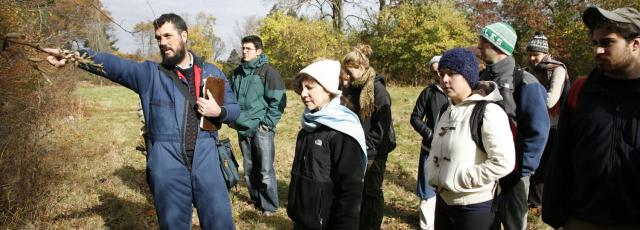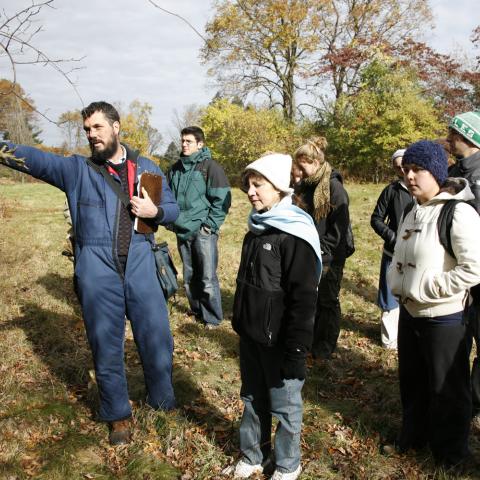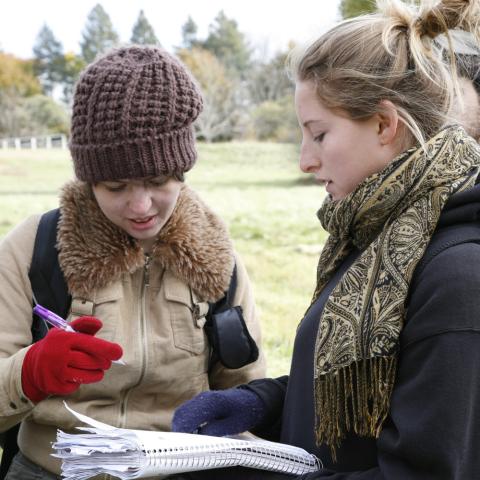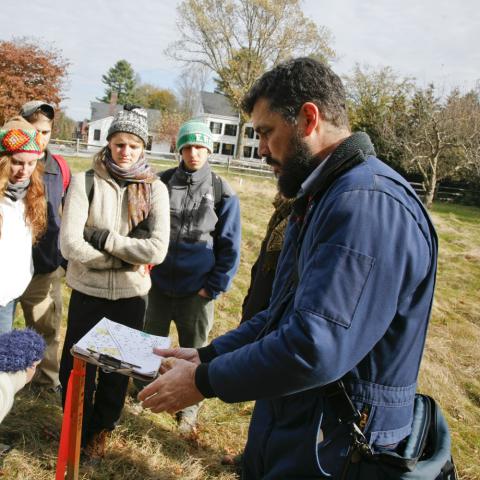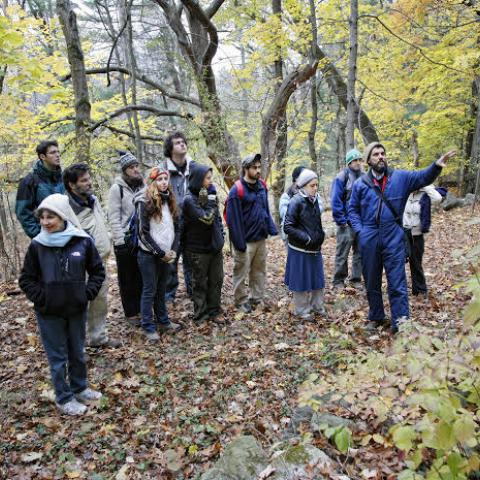Grant Year
2018, 2017, 2015Project Leader/s
Project Description
Think “ecosystem” and your mind most likely conjures up an image of pristine forest, verdant jungle, or vast, teeming ocean. American suburbia might not come to mind, when in fact the suburbs, where most Americans live, constitute unique and dynamic ecological systems in their own right. This is environmentalism’s backyard—where millions of Americans grow up, learn about nature, and acquire their environmental values.
The increasingly rapid rate of ecological and social change—from incursions by invasive species and pests, to conflicts with wildlife, to the need to expand sustainable local food and wood production—present both challenges to and opportunities for more responsible stewardship of suburban ecosystems. Against that backdrop, faculty at Brandeis University saw an opportunity to develop an incubator for generating new insights and possibilities for suburban landscapes’ contribution to the well-being of their local and larger metropolitan communities. “Nearby Walden Woods provided the perfect setting in which to launch this new initiative, building upon the Environmental Studies Program’s field practicum model, which has a track record of activating students, engaging community organizations and citizens, and providing invaluable science in often under-studied regions,” says Professor Brian Donahue.
“Ironically, given its fame as the setting for Henry David Thoreau’s Walden experiment, much of the land proximate to Walden Pond is under-researched,” continues Donahue. “For example, the extensive farmlands of what was once Baker Farm, now managed by The Food Project, have the potential to educate young people while also providing food for Boston.”
Since the program’s launch, students have begun a variety of field research projects, from collecting data on Hemlock woolly adelgid to studying the effects of deer browse on forest vegetation. “It was exciting for the students (and me) to core and measure white pines on the very site where Thoreau watched several hundred-year-old, hundred-foot-high pines being felled in 1851, and to discover that the pines standing there today are even bigger and older than that!” says Donahue.
The Research Practicum’s model of student-led, practical research, close mentoring, and cohort-based education resonate with the Thoreau Foundation’s multi-pronged approach to nurturing future environmental leaders. “Mentorship and networking are key to our educational philosophy,” says Donahue. The Walden Woods project is partnering with similar studies of ‘sustainable working landscapes’ being conducted by researchers at Harvard Forest, Highstead (in northwestern Connecticut), and others across New England, providing Brandeis students with the opportunity to meet and compare notes with leading regional ecologists and their students and interns.
Donahue sees this project as reaching back to Thoreau’s ideals to propel them into the future. “Our hope is that students in the Research Practicum will recapture the magic and import of Thoreau’s Walden experiment. They will acquire the 21st century skills to influence decision making in Greater Walden Woods for decades to come, as well as in the suburban landscapes in their communities throughout their lives.”
